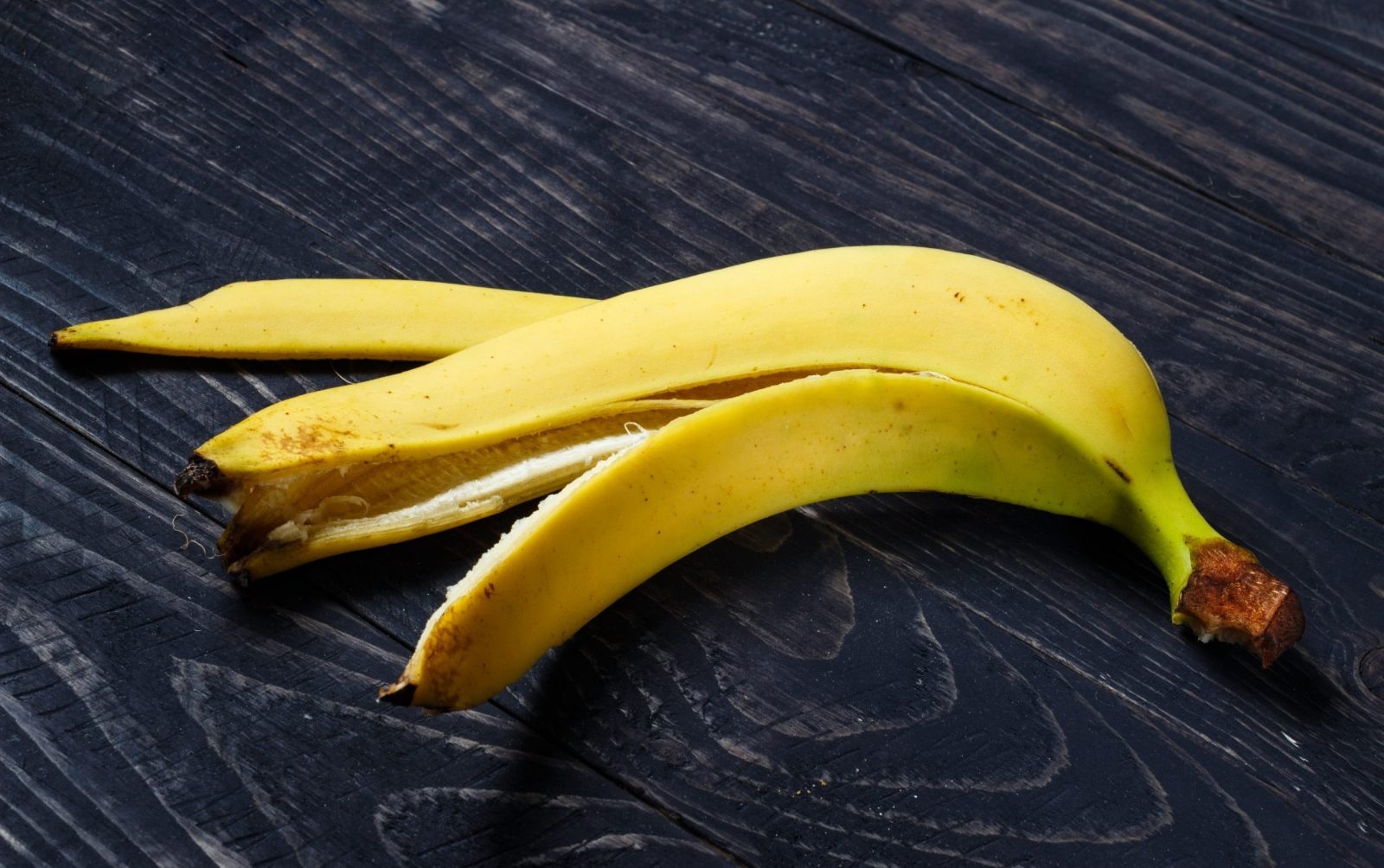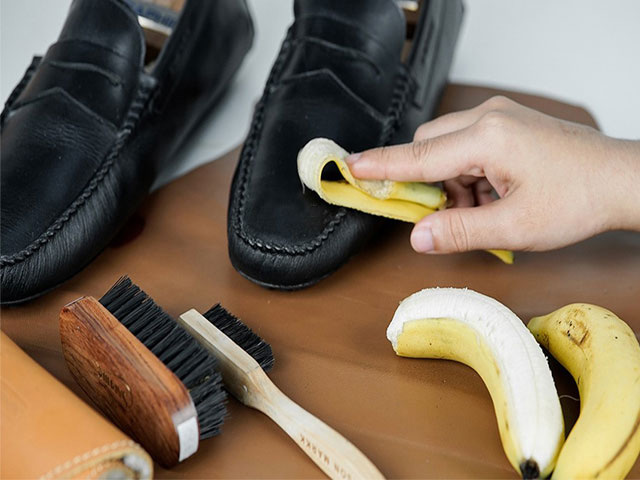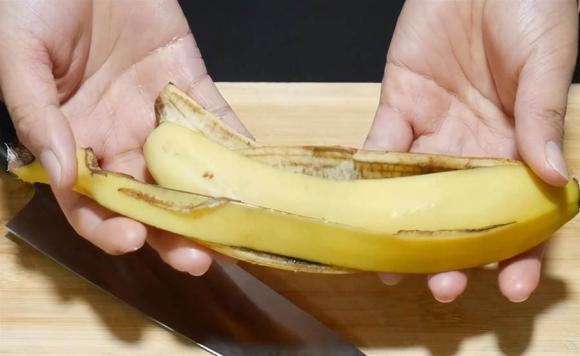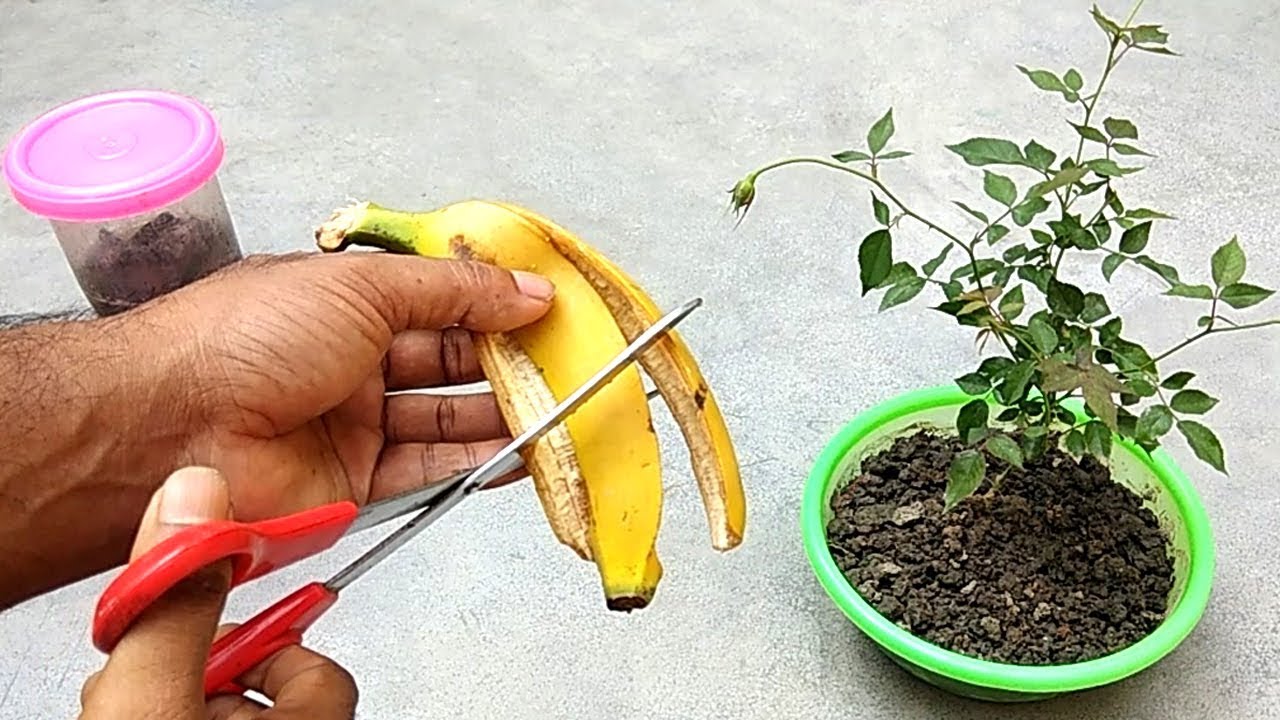In our daily lives, there are numerous seemingly insignificant things that we might be tempted to discard. However, this isn’t always the case. If utilized properly, these items can become effective “tools” with a variety of applications. A great example of this is the peel of a fruit that many families consume daily—the banana.
Listed below are five surprising uses for banana peels, most of which pertain to cleaning and housekeeping. And the best part is that they’re all easy and safe to implement in your daily life.

Illustrative image
1. Polish Leather Shoes
The first surprising use for banana peels is to polish shoes, specifically leather shoes. Leather shoes are a popular choice for many, especially men. While they usually look sleek and shiny, they can quickly show their flaws once they become dirty.
In this situation, most people would consider taking their shoes to professional cleaning or repair services. However, banana peels offer a simple solution to this problem.
Simply cut a small piece of the banana peel and use the inside of the peel to rub onto the surface of the leather shoe. Banana peels contain natural cleaning agents like pectin, which effectively remove dirt and stains from the leather surface. Additionally, it helps make the leather smoother and shinier.

Illustrative image
After using the banana peel, wipe the shoe with a dry paper towel to ensure the removal of any remaining dirt or residue, including any banana peel bits that may have stuck to the shoe.
2. Clean Stovetops and Furniture
Apart from leather shoes, banana peels can also be used to clean greasy stovetops and dull, faded furniture. The method is similar to that used for leather shoes: Rub the inside of the banana peel onto the surfaces you want to clean. For stubborn grease stains on stovetops, rub the peel vigorously several times to ensure the stains are removed.
After using the banana peel, wipe the surface with a paper towel or a damp cloth. This practice can be incorporated into your weekly cleaning routine, especially in the kitchen. It helps reduce the use of chemical cleaning agents, which often have unpleasant odors and may be less friendly to your health.

Illustrative image
3. Deodorize
In addition to cleaning, banana peels can also be used for deodorizing. A typical example is using them to eliminate odors in cars, especially in the areas of leather seats and upholstery. Take advantage of banana peels, preferably whole ones, and place them inside your car in the areas that need odor removal. Leave them there for a few hours or, ideally, overnight.
Banana peels contain not only natural cleaning agents like pectin but also a certain amount of acid and antioxidants. These substances react chemically with unpleasant odors or the smell of new car interiors. So, when you remove the banana peels, those odors will be gone as well.

Illustrative image
For complete odor removal, if possible, leave the banana peels in your car for a few days. However, remember to replace the old peels with fresh ones daily. Otherwise, this method may backfire, as banana peels left for too long will rot and become moldy.
4. Fertilize Plants and Flowers
Few people know that banana peels can be used as a natural fertilizer for plants and flowers. Simply tear or grind the banana peels into small pieces, place them in a large bowl, add a small amount of water, and cover the bowl with a lid or plastic wrap. This process will help the banana peels ferment. After 3-4 days, filter the water in the bowl and use it to water your plants and flowers.
Don’t discard the remaining banana peel pulp, either. Use it as compost for your indoor plants. It will not only provide potassium and phosphorus for your plants but also help repel pests and other insects.

Illustrative image
5. Ripen Fruits
The fifth use of banana peels is unrelated to cleaning or housekeeping, but it’s still very useful when it comes to fruits in your refrigerator. Banana peels, when placed next to certain types of fruits, can accelerate their ripening process.
This is because banana peels contain ethylene, a natural ripening agent. Simply place the banana peels next to the fruits you want to ripen, or tie the peels together with the fruits in a bag. After two to three days, fruits like mangoes, persimmons, or kiwis will soften and become ripe.
According to Đời sống pháp luật (Legal Life)
































